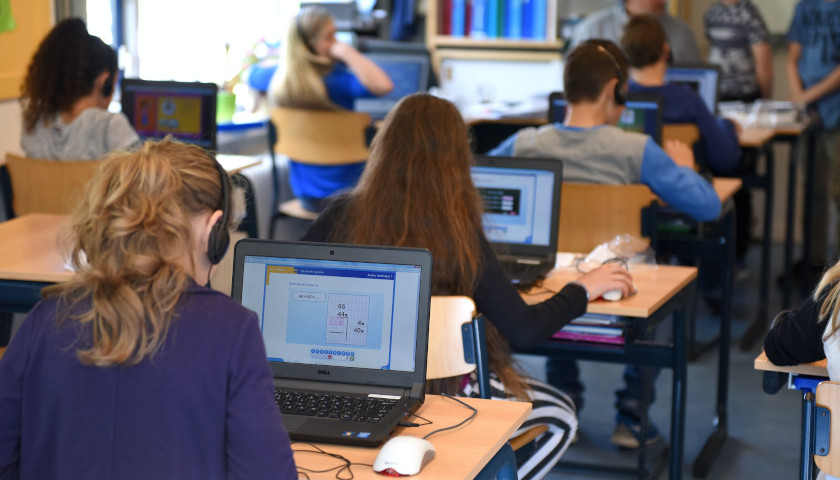by Roger James Hamilton
Educational technology, or edtech, is now a $10 billion global industry. It’s in every classroom whether physical or virtual. But gone missing from the conversation around the proliferation of edtech companies in the U.S. and around the world is a discussion of the philosophy of education. While billions of dollars are pouring into edtech companies and new technologies are delivering and creating content in creative new ways, there does not appear to be any meaningful discussion about what education’s aim should be in a world that has changed and is changing dramatically. We are now in the digital decade, a truly global society with technology driving the emergence of the metaverse, digital currencies, artificial intelligence, personalized healthcare, and the democratization of learning. But what should we teach, and how should we teach it?
The greatest achievements in the world have been accomplished by entrepreneurs and teams of collaborators, thinkers, and doers. Learning is more than reading, writing, and arithmetic. It is more than gaining cultural literacy, more than learning a skill for a particular job, more than teaching the importance of social justice, of creating “good citizens,” or teaching the importance of protecting the environment. It is all of the above and more.
What would a philosophy of education look like that was founded upon the principle of entrepreneurship, where students and teachers personalize the curriculum around student’s passions, purpose, and aptitudes? Not a boss-led system, where testing, particularly state testing, is the be-all and end-all of education. Imagine a school in which each child is treated as an individual with unique talents and gifts, with a curriculum designed around those natural talents, in which students connect through a virtual or physical reality with communities of shared interests and passions, a global community of students and learners where teachers, mentors, and tutors interact live with each other to take on the world’s problems.
Perhaps Augustine was right that happiness is the final purpose of education. “True education,” he said, “is a kind of soul therapy.” Western education, particularly in the U.S., is still heavily focused on standardized testing and rote learning. We hear a lot about lifelong learning, the importance of individualized education, of helping students discover their passions. Buzz phrases or reality?
We need a view of education that recognizes education as one of the noblest professions, where teachers are paid for the quality of education they provide. William Glasser, M.D. in his book, The Quality School, writes that “raising the state test scores a point or two or reducing the dropout rate a few percentage points” should not be goals of any school. “The new goal is quality in all that takes place in school,” Glasser writes, and importantly, he emphasizes that the school place should be “satisfying” to the students.
What ideas, what curriculum will satisfy the soul of the students and learners? We need a new curriculum for the 21st century, one that will prepare students of all ages for a very different world than we live in today and one that will continue to evolve. A 21st-century philosophy of education will teach from an early age the trends that will shape the world; help students follow their passions and understand that with knowledge everywhere via the internet if one develops a strong work ethic, high achievement is possible in every field and endeavor. Students should be taught not just how to get a job, but how to create their own jobs, how to interact in the metaverse, how to harness A.I. to make themselves and the world around them better. Decentralization is at the heart of the revolution in education where everyone can and should think and act like an entrepreneur, where everyone is given the tools and training to be their best, not someone’s else’s best. The world’s greatest inventions, greatest philanthropies have been created by entrepreneurs. A global curriculum should have at its foundation an understanding of what has made entrepreneurs successful and how their work has made the world a better place.
What ideas should underpin a global curriculum? Here are ten to consider:
-
Teaches and helps students understand and embrace the pivotal trends shaping the digital decade.
-
Teaches entrepreneurship from an early age.
-
Focuses on individualized, student-centered, interactive learning.
-
Connects communities of learners globally.
-
Embraces the world’s problems and the importance of finding solutions with real-world learning experiences.
-
Teaches the importance of giving and sharing.
-
Teaches the importance of hard work, positive thinking, and delayed gratification.
-
Teaches cultural literacy.
-
Teaches that wealth creation is a positive and can be done without harming the environment or hurting others.
-
Teaches the importance of making the world a better place for all.
– – –
Roger James Hamilton is a futurist and social entrepreneur. He is a NY Times bestselling author and the founder and CEO of Genius Group, the world’s No 1 entrepreneur education group.




